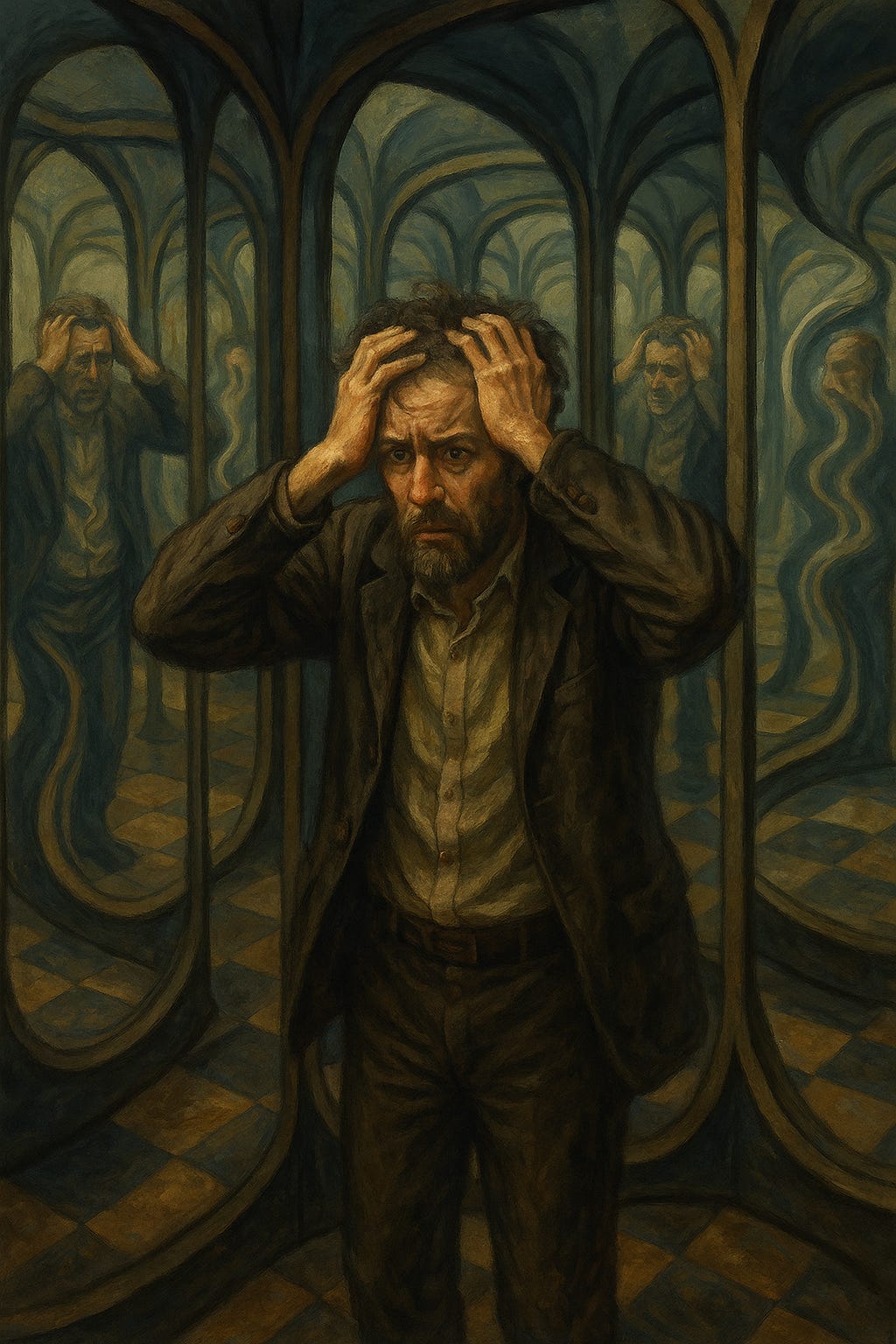House of Mirrors, Part IV
The Collapse of Meaning and the Crisis of Sovereignty
This is the fourth of a five part series on the House of Mirrors.
Each part was accompanied by a Youtube video that I recommend watching if you want to understand the larger picture I’m attempting to illustrate.
The added an epilogue and addendum bring this series right up to current events. Thank you in advance for your time and your consideration.
Click here for the introduction, part one, part two, part three, part four, part five. Epilogue. Addendum.
We now enter the most disorienting room in the house — the hall of distorted mirrors. Here, shapes twist, scale warps, and the self stares back in panic. The air is thick with suspicion. The light flickers. The reflection seems to whisper, “Something is terribly wrong.”
This is the mirror of the truth-seeker without a compass.
Neil Oliver, voice trembling with righteous indignation, and Nick Hudson, sharp and incisive, are not blind. On the contrary, they see more than most: the rise of surveillance, the hollowing of democracy, the manipulation of language, the creep of totalitarian control under digital banners. They know the system is broken — that sovereignty is being erased, and human dignity reduced to data points in a centralized regime.
But their tragedy is this: they see the destruction of the temple, but cannot see what the temple was built for.
Their enemy is “centralization.” Their antidote is “sovereignty.” But sovereignty in the name of what? Against what standard do they rage? Who defines flourishing? What vision calls the human person out of fear and into glory?
Without a fixed point, the mirror spins. It reflects not a villain, but a shadowy “they.” The enemy is nebulous — elites, technocrats, globalists — but also curiously absent. There is rage, but no altar. Fire, but no pillar of light.
And this is the crisis: they rightly reject tyranny, but cannot define freedom.
Because freedom is not the absence of control — it is the right ordering of the soul. And that ordering cannot emerge from below, from the self alone. It requires a vertical axis, a grounding Logos, an Author whose image gives the human being dignity beyond politics or algorithms.
Oliver senses this, though he cannot name it. He rails against the disembodied technocrats and their one-size-fits-all narratives. He calls for noncompliance, civil resistance, decentralization. But the fight is not only against the powers of this world. It is, as Scripture says, “against the rulers, the authorities, the cosmic powers over this present darkness.” (Ephesians 6:12)
That is why anger is not enough. Conspiracy is not enough. Even truth-telling, if unmoored from the Truth, cannot save. It may point to error — but it cannot show the way out.
And the way out is narrow. It does not lie in the assertion of the self, but in its crucifixion. It is not found in a perfect society, but in a transformed heart.
This is the paradox that breaks the mirror: real sovereignty begins with surrender. Not to the state. Not to the algorithm. But to the God who became man — who did not centralize power, but gave it up for love.
Without that foundation, resistance becomes noise. The fight becomes exhaustion. The prophets become paranoid. And the mirrors multiply.
This room is dangerous because it is so close to waking up. But without the Logos, it cannot find the door. Only the Lamb is worthy to open the seal — and only He can lead the captive out of the hall of mirrors.

